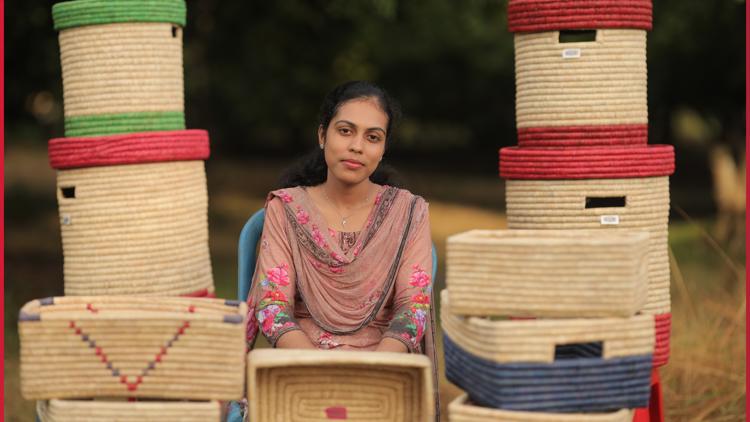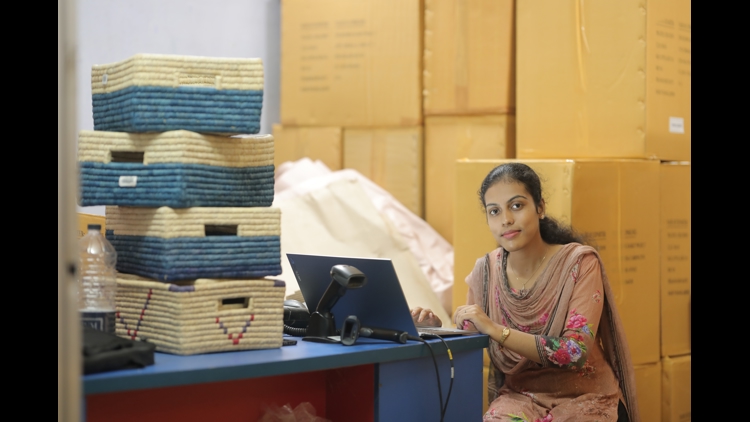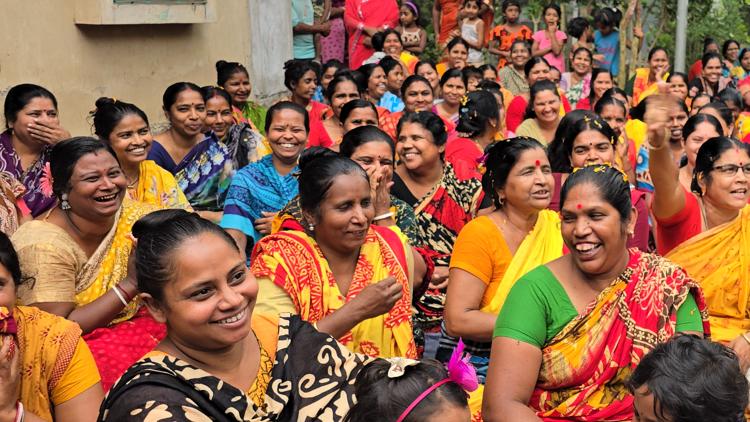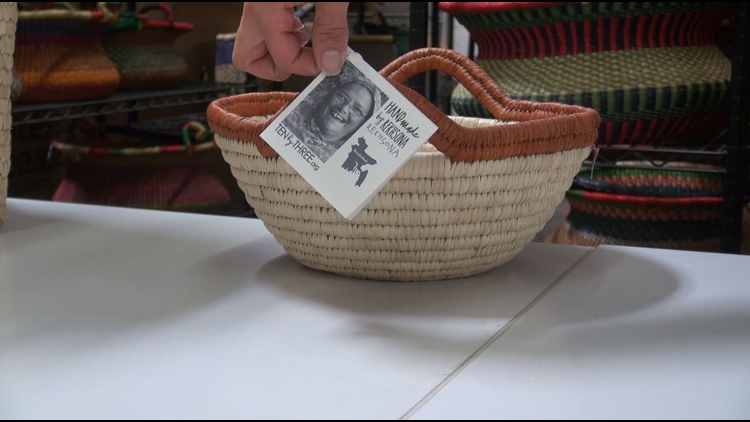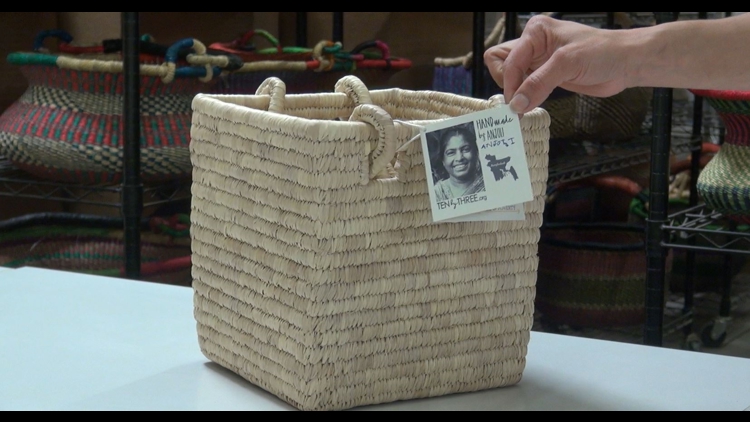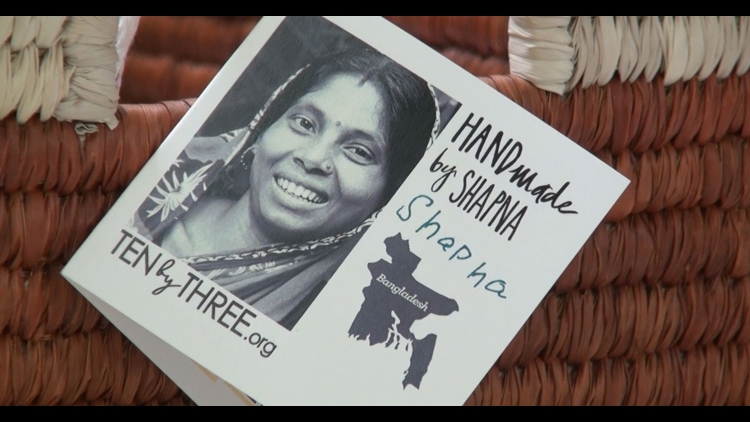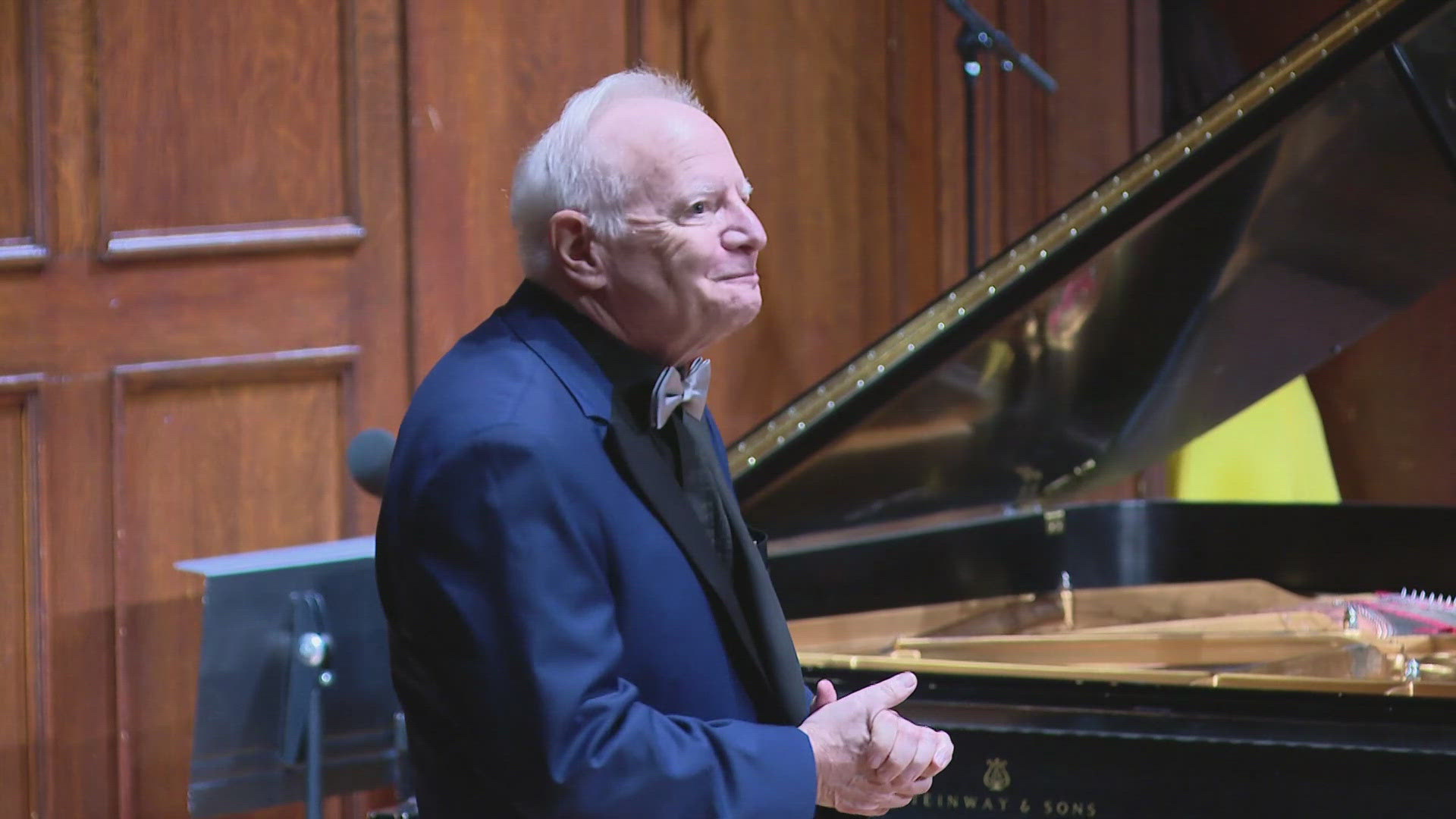BANGLADESH, — The faces attached to countless baskets across St. Louis tell stories of the artists behind the beautiful handiwork. Now, over 600 of those artists are in danger.
Ten by Three, formerly known as the Blessing Basket Project, delivers intricately woven baskets across the world for a good cause. The program employs 2,000 artisans globally and has used its proceeds to start businesses and help artisan families after it launched in St. Louis. During the program's 20-year existence, 8,500 artisans and their families have been lifted out of poverty from seven countries. Bangladesh and Ghana are the organization's two longest-standing partner locations.
The program also connects the basket's buyer with its maker. Every basket has a picture of the weaver's face, along with a QR code to learn more about and communicate with the artisan.
"We've had thousands of letters exchanged between artisans and customers, many of them from St. Louis," said Stephanie O'Donnell, the chief advancement officer for Ten by Three in St. Louis.
Conflict has stopped that communication. Shipping ceased after Bangladesh Prime Minister Sheikh Hasina resigned from leadership and fled to India in a helicopter following a student-group-led uprising, according to the company's Bangladesh Director Kristy Goswami. Since then, both Hindus and Muslims have been attacked.
"We are now confined in our house," Goswami told 5 On Your Side from Bangladesh. "We are so scared. We are nervous. We are just praying to God that things will be good soon and we are so optimistic. We can see the rays of the sun."

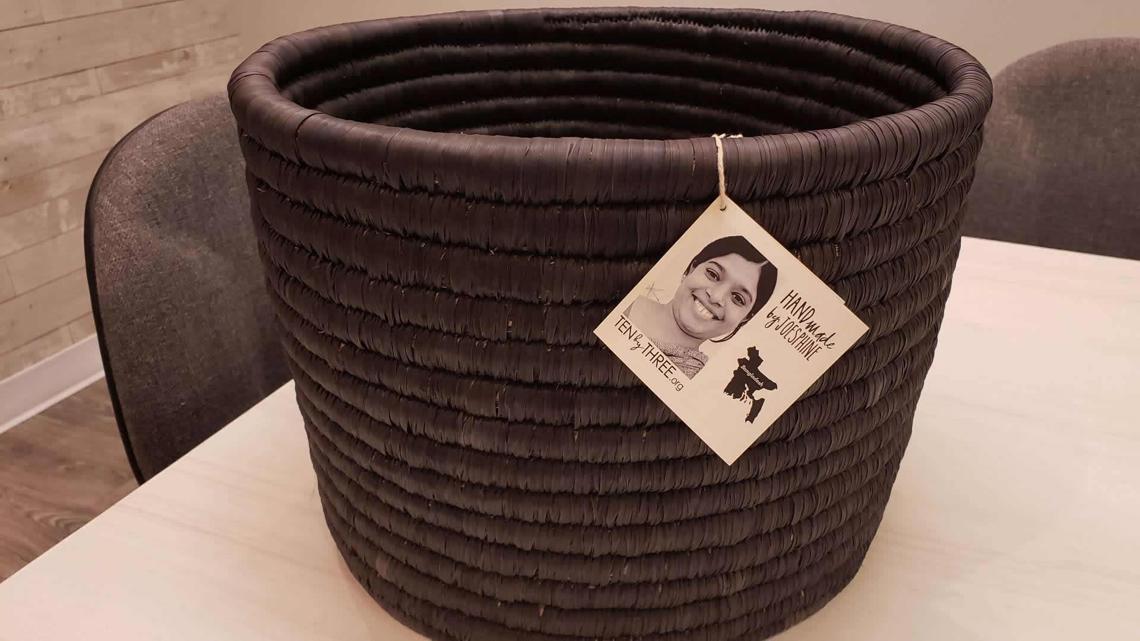
Goswami oversees the project's 643 artisans who live in Bangladesh, all of which are waiting for some sense of normalcy again.
"I heard from our artisans that some Hindu artisans were attacked by some group of people," she said. "The artisans did not know who they were. "
This threat was a verbal warning by an unidentified group and a few artisans were injured as they tried to protect their families from the group. Goswami said these villages lack information because they live in extremely rural areas. She said when they were threatened, they had no idea what was happening yet.
"Our organization is focused on ending extreme poverty, so we serve in very rural areas and with very marginalized communities in Bangladesh," O'Donnell said. "We're working with the Dalit caste, which is the untouchable cast. They are by and large pushed out of society in many ways already."
Goswami spoke with some of the artisans who were attacked imparting faith and hope into a frightening reality. O'Donnell said the protests and other incidents have been brewing for a few weeks and the organization has worked to monitor and support the artisans in the country.
"Our shipment is hanging in the balance right now because of the transport crisis, so basket collection is now stopped because of the transport crisis," O'Donnell said.
The only updates about the unrest have come from the media, according to Goswami. She said they are all depending on the news channel as they broadcast the information that affects so many parts of their economy.
Ten by Three artisans under attack
During the tumultuous time, Goswami instructed the artisans to stop working and resume work when they feel safe.
"We wake up every day and we we sell the baskets, but our mission is to end extreme poverty, and we do that through our prosperity wage model," O'Donnell said. "Artisans are paid 2 1/2 times fair-trade wage. We buy the baskets, we have contracts with Whole Foods, Lowes, and Room and Board. They buy those baskets and then that enables us to put that money in the hands of the artisans. First and foremost, our commitment is to the artisans."
The way the program works is the artisans commit to making 10 baskets a month. The proceeds from those baskets are used to start businesses and stabilize artists' families. O'Donnell said the program has greatly impacted communities.
"We're all connected," O'Donnell stated. "While events in another country might seem distant and unrelated now, their impact is likely to reach us eventually due to our deeply interconnected global economy. The ripple effects of these events can and will influence us here in St. Louis."


